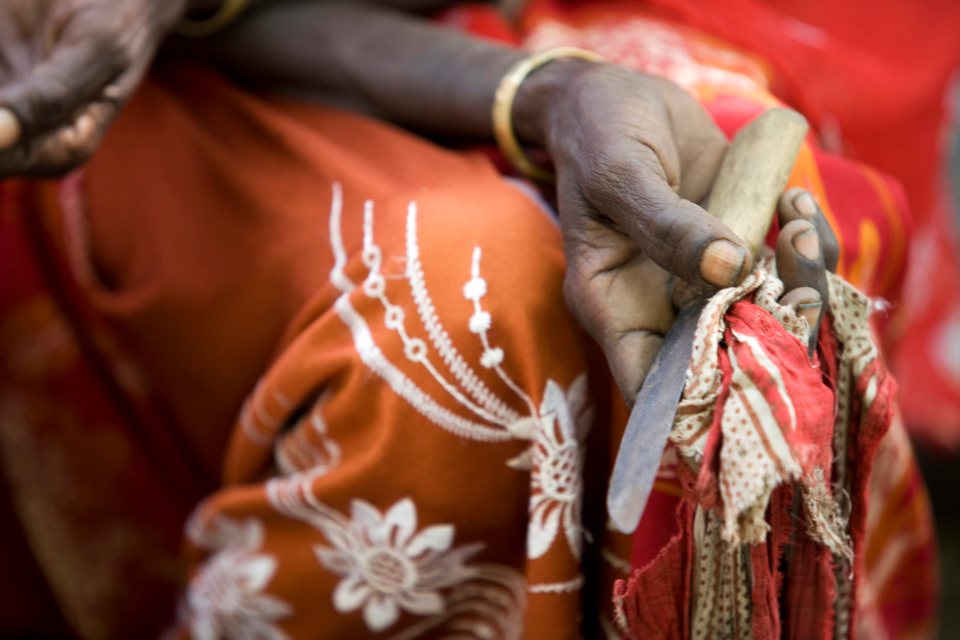
What is more important, culture or law? Would you rather stick to the law and be an outsider in your culture or break a law and be accepted among your culture? Everyone has a cultural lens of their own that they use to view the world. A huge issue arises when one culture uses its own viewpoint to peg the practices of another culture as crimes. We can see this issue clearly in the subject of Female Genital Mutilation.
Female Genital Mutilation is the practice of intentionally altering, removing, or injuring the female genitalia without medical purposes. It is common in Africa, the Middle East, and Asia. Culturally the procedure is seen as a right of passage, from girl to woman. It is usually done on girls between infancy and age 15, and always done before they are married. In cultures where FGM has been practiced for millenniums, both the men and the women see the practice and its outcome as normal and desirable. Although FGM is desired and commonly practiced in these areas, FGM is internationally recognized as a violation to human rights. There are no health benefits to FGM and severe harms that it causes. Some immediate consequences are severe pain, infections, and death by shock. A few long-term consequences are psychological damage and issues with menstruation, urination, sex, and childbirth. Most countries in Africa, the Middle East, and Asia have created laws that make performing or receiving FGM illegal. These laws have been difficult to enforce, because of the strong cultural ties. There has been progress made to lower the rates of FGM, but that progress has been extremely slow.
Do governments have the right to prohibit a culture’s practice? In the journal, Developing World Bioethics, John Steward Gordon answers this question by saying that both sides need to compromise. Gordon focuses on the cultural background of FGM and with that, analyzes ways in which FGM can be carried out while still keeping up with the high demands of universal human rights. His criteria are as follows: 1) There must be individual informed consent. 2) Some forms of FGM are such a severe risk to health that they should be actively discouraged through education, social pressure, regulation, and prohibition. 3) All FGM should be carried out by medically trained experts. 4) The instruments should be disinfected and anesthesia should be available. 5) There should be no social-political pressure and a female who refuses FGM should not be disadvantaged.
Although his criteria aim at helping compromise this controversial issue, there are many reasons why his compromises are not likely to be met. For his second point, it is difficult to say that some forms of FGM are acceptable and others are not. This would likely be confusing for both governments enforcing the rule and practitioners carrying out FGM. Governments would have to criminalize some forms of FGM and legalize others. His next point, that FGM should be carried out by medically trained professionals, is insinuating that the medical field needs to accept the practice of FGM and help continue the practice in a safer way. This would likely be difficult to integrate into the health field, because medical professionals are focused on healing their patients rather than causing them unnecessary pain. Right now there are thousands of doctors in jail who have tried to help people carry out FGM in a safe way. This practice is highly illegal and it would be very difficult to change that. Gordon’s last point states that no woman refusing FGM should be disadvantaged. This brings up a serious issue regarding FGM. Laws can legalize or prohibit certain practices, but they cannot make a person be truly accepted and valued by their culture. The law may prohibit FGM, but it gives no replacement behavior, ritual, or norm that helps fill the void that FGM had in these cultures for thousands of years.
When culture and criminal behavior are closely tied, it is difficult to find a common ground that ensures universal human rights. If you were a young girl in a culture that practices FGM, do you think that you would choose to follow the ways of the law or follow the ways of your culture?
References
Cook, Michael. “Is a Defence of Female Genital Cutting Possible?” BioEdge. N.p., 23 Sept. 2017. Web.
“Female Genital Mutilation.” World Health Organization. World Health Organization, 2016. Web.






